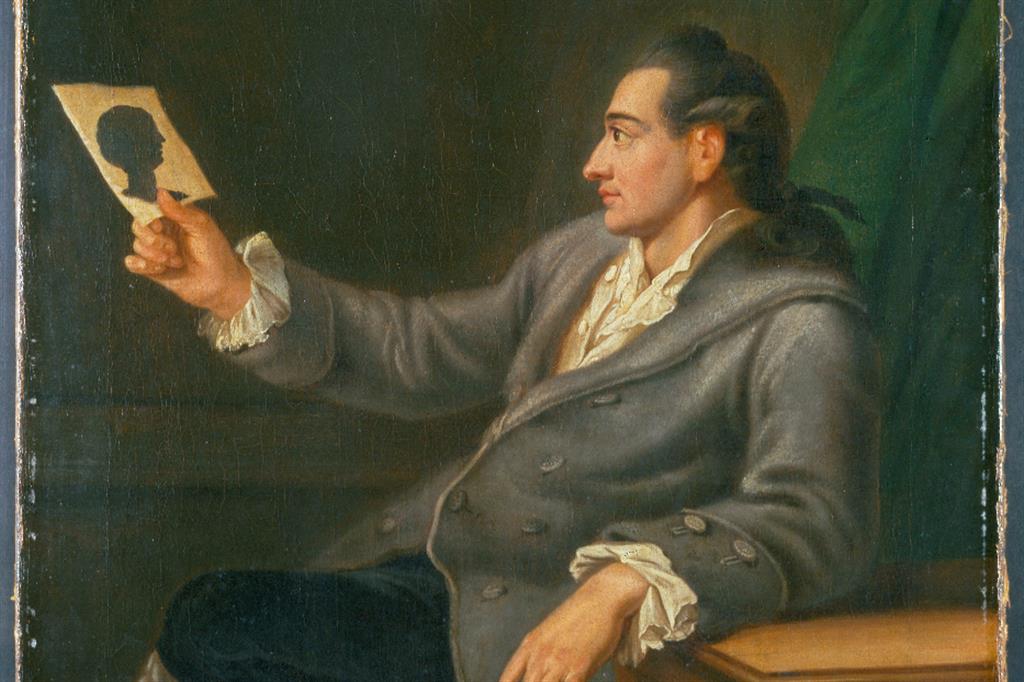
Johann Wolfgang von Goethe writer and poet
“Goethe is the greatest man of our time.”
(Friedrich Schiller, Letter to Körner, 1794)
“Goethe is the most complete incarnation of the European man.”
(Thomas Mann, Speech on the Centenary of Goethe’s Death, 1932)
“Goethe is truly a great soul, and no one has ever looked at the world with calmer, purer, and more comprehensive eyes.”

Johann Wolfgang von Goethe is one of the most influential figures in European literature. His work, studied and commented on for centuries, lies at the heart of countless treatises, academic analyses, and specialist contributions. A popular science website certainly cannot claim to exhaustively convey the complexity and breadth of such a central author in Western culture.
Yet it is precisely in the awareness of this impossibility that we will try to explore the non-obvious in Goethe’s production: those lesser-known, sometimes overlooked aspects that enrich the traditional image of the “German classic.” Our gaze will linger on shadowy areas, variants, experiments, and cross-pollinations that make Goethe not only a father of modern literature, but also an author surprisingly open to the world and its contradictions.
In particular, the site will offer in-depth explorations of some lesser-known traits of the German genius’s personality and literary output.
Some areas to explore might include:
- The “West–Eastern Divan”: a poetic work inspired by Islamic mysticism and Persian poetry, which reveals Goethe’s deep interest in “other” cultures and worldviews, far from rigid Enlightenment rationality. He did not convert to Islam, but in his extraordinary freedom and open-mindedness, he developed a profound admiration for Islamic culture, especially Persian and Arabic poetry. This fascination is most evident in this work, inspired by the great Persian poet Hafez, where Goethe adopts forms, images, and references from the Islamic East. Throughout his life, Goethe expressed admiration for the Quran, describing it respectfully as a “sublime law” whose literary and moral power he recognized. “The Quran is a great and powerful truth.” In his youth, he even wrote a theatrical fragment entitled Mahomet, in which he portrays the Prophet as an inspired hero, though not uncritically idealized. Goethe saw Islam as a cultural and spiritual system of great depth that did not oppose rationality.
- Multiple versions and works of uncertain authorship: a journey through manuscripts, alternative versions, and juvenile texts, which highlights a Goethe more artisan than monument, more mutable than definitive. We will seek to shed light on some little-explored aspects of Goethe’s work, such as the question of the autograph of Wilhelm Meister’s Theatrical Mission (Die theatralische Sendung des Wilhelm Meister).
- Heirloom texts from his youth: often overshadowed by the masterpieces of maturity, these texts show a lively literary restlessness, close to Sturm und Drang, and reveal a sensitivity still forming, yet already powerful.
The goal is not to build a new canon, but to open a space for reading that invites discovery, rereading, and above all, doubt. Because if Goethe is a classic, it is precisely because he continues to astonish us.
Goethe Haus Palermo
A site about the extraordinary figure of Goethe.
For any comments on this page and to report any errors, please send an email to info@goethehaus.cloud.
Subscribe to our Newsletter!
